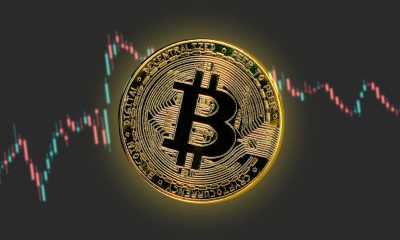Crypto
Why the Problem with Failed Solana Transactions Is Growing
Solana (SOL) struggles to maintain its March highs, currently showing a 7% weekly loss. The network faces increasing failed transactions, with only 25% of monetary transactions processing correctly. Bots contribute to network congestion, frustrating users like Dan Gambardello. Solana’s reputation for speed and capacity is challenged, requiring network improvements to ensure reliability.

The price curve of Solana (SOL) can no longer defend its high from the first half of March. In the concert of the ten most important global cryptocurrencies, Solana is currently negative with a weekly loss of 7 percent.
The search for causes leads to a topic that also affects the future viability of SOL. Because the problem with failed Solana transactions is getting bigger and bigger. Blockchain data shows that on a daily average only 25 percent of monetary SOL transactions are processed in the network as intended.
If you want to find out how the failed Solana transactions impacted the price of the cryptocurrency and to be the first to find the most important financial news from around the world, download for free our companion app Born2Invest.
Two weeks ago, the rate of failed Solana transactions was still around 55 percent
It is now becoming increasingly clear that the majority of transactions that get stuck in the SOL network come from bots. But it also affects normal users like Dan Gambardello, who complains about his suffering on X. So you sit in front of the computer and expect a SOL transaction to be confirmed within seconds – and in the end you have to trigger it several times for it to go through.
Since its early days, Solana has always advertised that it has the fastest network with the highest capacities among modern blockchains. This story has already been deeply scratched by repeated total failures of the SOL network. Solana’s defenders argue, among other things, that the boom in meme coins in the ecosystem is leading to additional burden.
But from a user perspective, it is still clear that Solana urgently needs to improve its network structure. In crypto sectors such as decentralized finance (DeFi), Metaverse or gaming, it is all about processing transactions reliably in what feels like real time. Solana can no longer necessarily keep this promise. Solana developers discuss how they can limit the activity of bots and how to define crypto spam technologically.
Conclusion: Solana Network still in beta version
In the official language of the Solana Foundation, the SOL network is still in beta mode around four years after its launch. Programmers use this to describe software that is checked for errors.
Strictly speaking, the failed Solana transactions are not a mistake, but rather their rejection was inevitable in the event of network overload. Nevertheless, Solana will have to focus on the problem in order to prove its future viability – because who wants to use its system in which supposedly simple transactions become a game of chance.
__
(Featured image by Anna Tarazevich via Pexels)
DISCLAIMER: This article was written by a third party contributor and does not reflect the opinion of Born2Invest, its management, staff or its associates. Please review our disclaimer for more information.
This article may include forward-looking statements. These forward-looking statements generally are identified by the words “believe,” “project,” “estimate,” “become,” “plan,” “will,” and similar expressions. These forward-looking statements involve known and unknown risks as well as uncertainties, including those discussed in the following cautionary statements and elsewhere in this article and on this site. Although the Company may believe that its expectations are based on reasonable assumptions, the actual results that the Company may achieve may differ materially from any forward-looking statements, which reflect the opinions of the management of the Company only as of the date hereof. Additionally, please make sure to read these important disclosures.
First published in BLOCK-BUILDERS.DE. A third-party contributor translated and adapted the articles from the originals. In case of discrepancy, the originals will prevail.
Although we made reasonable efforts to provide accurate translations, some parts may be incorrect. Born2Invest assumes no responsibility for errors, omissions or ambiguities in the translations provided on this website. Any person or entity relying on translated content does so at their own risk. Born2Invest is not responsible for losses caused by such reliance on the accuracy or reliability of translated information. If you wish to report an error or inaccuracy in the translation, we encourage you to contact us

-

 Cannabis1 week ago
Cannabis1 week agoCannabis and the Aging Brain: New Research Challenges Old Assumptions
-

 Crowdfunding7 days ago
Crowdfunding7 days agoAWOL Vision’s Aetherion Projectors Raise Millions on Kickstarter
-

 Fintech2 weeks ago
Fintech2 weeks agoFintower Secures €1.5M Seed Funding to Transform Financial Planning
-

 Impact Investing2 days ago
Impact Investing2 days agoItaly’s Listed Companies Reach Strong ESG Compliance, Led by Banks and Utilities

























